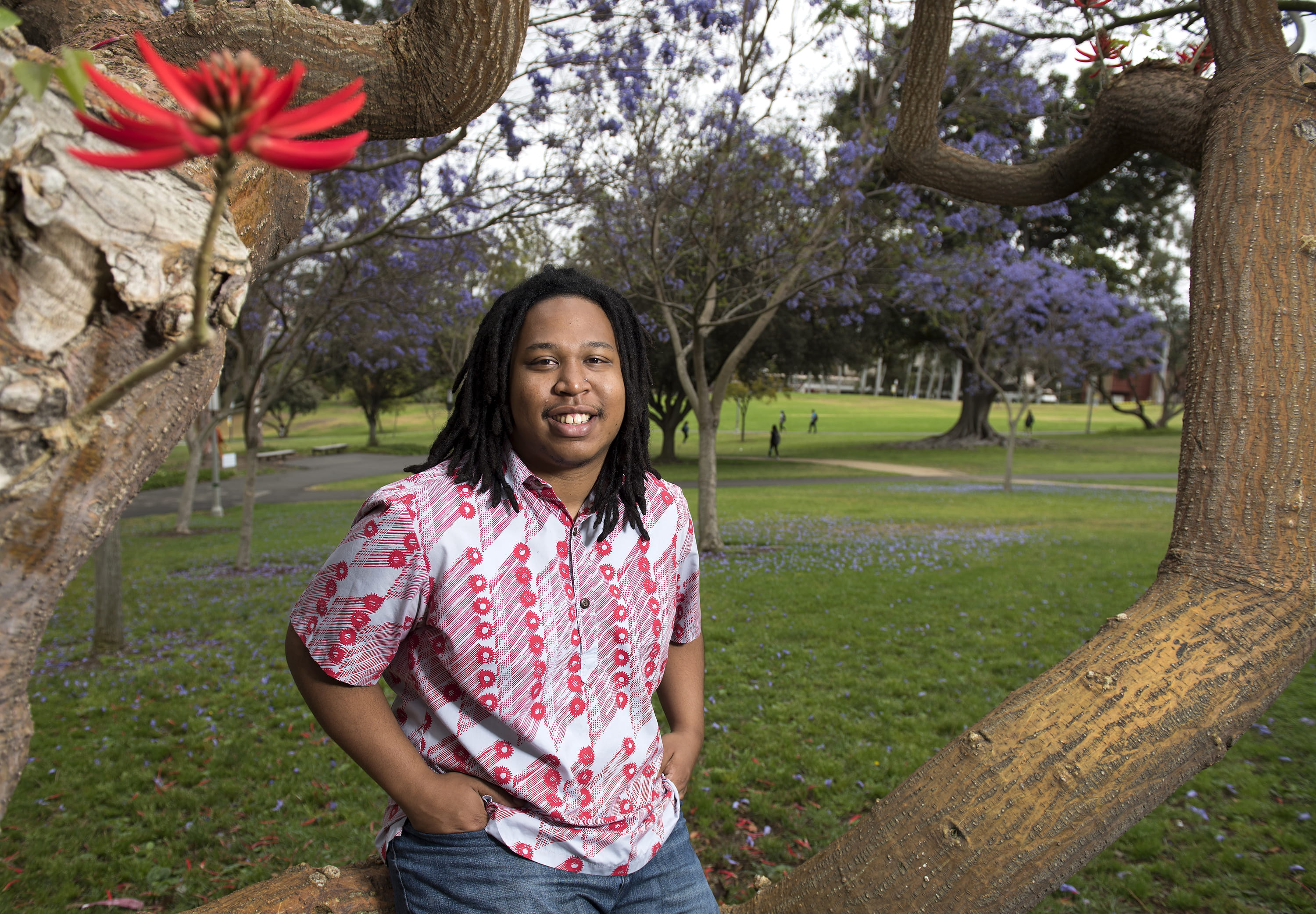No place like home
Hawaii native ventures to mainland in hopes of making island history mainstream

When Noah Patterson Hanohano Dolim began working on a Ph.D. in U.S. history at UCI, it marked the first time he’d ever lived outside Hawaii. Even though Southern California shares an ocean with his home state, he says, “studying Hawaiian history from the other side of the Pacific – and being one of the few people studying it here – has been a major adjustment.”
Dolim’s big move, and his desire to spread his passion for Hawaiian history, has already paid off. He recently won a Ford Foundation Predoctoral Fellowship – administered by the National Academies of Sciences, Engineering & Medicine – that provides three years of funding and mentorship to Ph.D. students committed to diversifying academia and serving underrepresented groups.
Hawaiian and Pacific history, Dolim’s specialty, is “sometimes overlooked” beyond the islands themselves, he says. In fact, he’s the only history graduate student at UCI with such a research focus.
“My interest in Hawaiian history has been ingrained in me since I was a young teenager,” says Dolim, who is Native Hawaiian and African American. He grew up in Oahu and attended a Native Hawaiian high school, then earned bachelor’s and master’s degrees in history at two University of Hawaii campuses. After developing a deeper appreciation of the islands’ history, he decided to venture beyond them for a doctorate.
Dolim had had his sights set on California since his undergraduate days, when he first read a book by Adria Imada, a UCI associate professor of history. She’s “one of the best Hawaii scholars in the continental U.S.,” he says, and her expertise in “gender, indigeneity and colonialism” in the state piqued Dolim’s interest.
“In addition to the fact that UCI is on the West Coast, close to the islands, I decided to come here because of Professor Imada,” he says. “Even though our specific interests are different, I love having someone I can engage with on the same themes and who knows the historical context of my work. There isn’t someone like that at every university.”
Now, with Imada as his adviser, Dolim is doing research on Native Hawaiian travel in the 19th century, focusing on it as a tool of indigenous governance. With the freedom afforded him through funding from the Ford Foundation Predoctoral Fellowship, he hopes to shuttle between Hawaii and UCI over the next few years in order to conduct research and stay involved in his community. After earning his Ph.D., Dolim intends to return home and teach in the University of Hawaii system.
“As a student and a professor, eventually, I want to be a conduit of diversity through teaching, educational outreach and community works,” he says. “Living and researching from the other side of the Pacific has provided me with opportunities and new ways of thinking that I never could have imagined. I can’t wait to share my passion for Hawaiian history throughout my academic career, at home on the islands and beyond.”